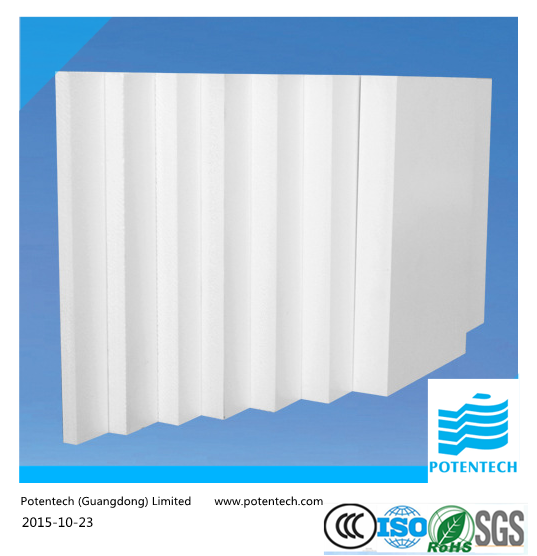What is PVC foam board?
PVC foam board is a kind of lightweight and durable plastic board made of polyvinyl chloride (PVC) material through the foaming process.
Because of its unique physical and chemical properties, it is widely used in construction, advertising, furniture and other fields.
PVC foam board has the advantages of light weight, corrosion resistance, water resistance, fire resistance, easy processing, etc., is a multi-functional material.

Analysis of mildew resistance of PVC foam board
In many application scenarios, the material's resistance to mold is critical, especially in humid environments. Mold not only affects the aesthetics of a material, but can also negatively impact its structural integrity and service life. PVC foam board performs well in terms of mildew resistance, and the following are its main mildew resistance characteristics:
Low water absorption: PVC sheet has a very low water absorption rate, which makes it difficult to absorb water in humid environments, reducing the conditions for mold growth. In contrast, many traditional materials such as wood absorb water easily, leading to mold growth.
Chemical stability: PVC material itself has excellent chemical stability and can resist the erosion of a variety of chemical substances. This characteristic makes the PVC foam board less susceptible to the invasion of microorganisms such as mold, thus maintaining its appearance and structural integrity.
Smooth surface: The surface of the PVC foam board is smooth, and it is not easy to accumulate dust and dirt, which reduces the breeding ground of mold. Regular cleaning can further improve its anti-mildew effect.
Antibacterial additives: Some high-end PVC foam boards have added antibacterial agents during the production process to further enhance their anti-mold properties. These additives can effectively inhibit the growth of mold and other microorganisms and extend the service life of the material.
The anti-mildew performance of PVC foam board in practical applications
In practical applications, the anti-mold performance of PVC foam board has been widely verified. Here are some specific application cases:
Kitchen and bathroom decor: Due to the humid environment in the kitchen and bathroom, traditional materials such as wood and drywall are prone to mold, while PVC foam board is ideal for these areas due to its waterproof and mildew resistant properties.
Outdoor construction: In outdoor construction, PVC foam board is often used for exterior wall decoration and outdoor furniture, and its weather resistance and mildew resistance make it maintain a good condition under various climatic conditions.
Ships and yachts: The interior environment of ships and yachts is humid all the year round, and the anti-mold performance of materials is very high. PVC foam board is widely used in the interior and furniture of ships and yachts because of its excellent anti-mold performance.
In summary, PVC foam boards demonstrate excellent mildew resistance with their low water absorption, chemical stability, smooth surface and application of antibacterial additives.
In humid environments, PVC foam board can not only maintain aesthetic and structural integrity, but also effectively extend its service life, which is an ideal anti-mold material.

